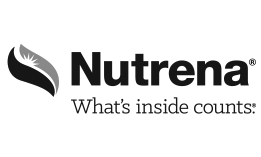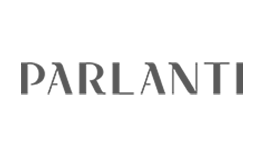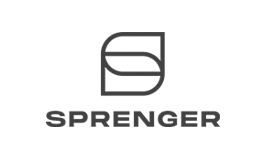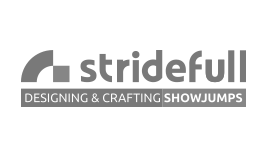
Diversity and Inclusion Advocacy Resources
The USHJA Diversity and Inclusion Advocacy Committee Action Plan
1. Provide unconscious bias and diversity awareness training for USHJA Staff, Board and Committee members.
2. Develop and include unconscious bias and diversity awareness content for inclusion as part of the USHJA Licensed Officials Education and Instructor Credential.
3. Identify solutions to reduce obstacles to equine sport faced by marginalized populations, and to increase the popularity of equine sport in marginalized communities.
4. Work with competition managers to implement multilingual signage at shows.
5. Create a directory of BIPOC and queer-owned or operated equine facilities and businesses as a reference for all members to use to connect with, encourage and support equestrians from underrepresented backgrounds.
6. Work with USHJA resources to establish marketing and messaging strategies that riding facilities, show managers and others can use to attract and encourage the participation of historically marginalized individuals in equestrian sports.
7. Establish a leadership and mentorship program which identifies and connects equestrians from traditionally underrepresented groups with opportunities to:
- Audit clinics
- Visit and tour barns and equestrian facilities
- Intern or be a Working Student at a riding establishment
- Shadow or intern with a Show Manager and/or Show staff
- Shadow Licensed Officials
The USHJA is proud to offer two complimentary membership options for businesses and organizations supporting diversity, equity and inclusion efforts. Businesses that identify as BIPOC-owned or supporting can apply for a complimentary one-time annual USHJA Business Membership. Hunter/Jumper local, state, regional and national non-profit organizations that have a DEI focus or services can apply for a complimentary one-time annual USHJA Affiliate Membership.
Celebrating Hispanic Voices Webinar
September 20, 2023
Join Hispanic equestrians including Skye Gravois, Victoria Asuaje, Aida Sanchez, David Bustillos and Ariana Morales to celebrate Hispanic Heritage Month. Our panel will highlight Hispanic equestrians from across the industry, discuss contemporary topics in the Hunter/Jumper world including representation and the media, the future of our sport, and take questions from the audience.
Celebrating Asian American and Pacific Islander Heritage Month Webinar
May 3, 2023
Join AAPI equestrians including Bethany Pastorial, Esther Hahn, Meeryo Choe, Shelly Watts and guest to celebrate Asian American and Pacific Islander Heritage Month. Our panel will highlight Asian American and Pacific Islander equestrians; discuss contemporary topics in the Hunter/Jumper world such as representation, media, fashion and equine careers; and take questions from the audience.
Keeping Sport Safe for All Athletes Through Proactive Prevention and Best Practices
April 12, 2023
As part of our efforts to raise awareness during Sexual Assault Awareness Month, we're hosting a discussion with Michaela Shepherd, executive director of #WeRideTogether, and Carrie Kehring, president and founder of #WeRideTogether. Join us to learn about best practices and proactive prevention techniques that can help ensure the safety of athletes in our sport.
A Discussion on the Past, Present and Future of Our Sport in Honor of Black History Month
February 10, 2023
In honor of Black History month a panel of black equestrians highlight a sample of influential black horse people of the last 150 years. The panel will then share some of their experiences as equestrians and take questions from the audience.
Cultural Competency Strategies for Diversifying the Sport
January 18, 2023
Join Gary Frasier, 2022/2023 USHJA Inclusion, Diversity, Belonging and Equity Consultant and Associate Dean at the UCLA Anderson School of Management, for a discussion on Cultural Competency Strategies for Diversifying Sport.
Body Image and Belonging in the Hunter/Jumper World
September 26, 2022
Join us as Sara Zimmerman, Natalie Gavi, Maya Schneider, Sissy Wickes and Jim Hagman lead a discussion on body image and belonging in the Hunter/Jumper world. Discussion topics include:
- Body image in Hunter/Jumper sport
- Truths and myths surrounding body image and inclusivity
- Personal experiences
- How to foster a healthy body image
- How to create an accepting and encouraging environment
- Q&A
Contact the committee at diversity@ushja.org.
The USHJA Board of Directors has endorsed the use of bilingual or multilingual labels and signs to increase participation and maximize functionality and safety at our horse shows.
Our Hunter/Jumper shows are increasingly attended by a diverse population of participants and spectators. This is also true when it comes to those that are employed by or work at our shows. A more diverse community and workplace isn't only a present reality, it also creates an opportunity for the continued growth of our sport.
One of the ways that we as a sport can be even more welcoming is through our communication strategies. To say that more families in the U.S. are bilingual is a massive understatement. For example, in America's five largest cities, nearly half of their respective populations speak a language other than or in addition to English.
Given that a significant portion of the U.S. population has Hispanic roots, it likely comes as no surprise that Spanish is second to English in terms of the top languages. There are 12 million native Spanish speakers and 41 million bilingual Spanish speakers in the U.S. Using bilingual signs at our horse shows will help make more people feel at home within our sport.
Another advantage of multilingual signage is a safer environment. Communication is key to smooth, safe operations. In our current environment, monolingual signs will be misunderstood and confusion and accidents may occur. Although there are many ways to reduce confusion and unfortunate accidents, posting signs in languages other than English in a diverse environment is a great start.
Using bilingual and/or multilingual signs can also prevent legal and regulatory issues. As work environments are becoming more diverse, communicating safety across language barriers has become a critical and complex legal issue. Because Hispanics account for a growing share of today's equine sport workforce, translated bilingual or multilingual signs are increasingly becoming the right choice for many equine businesses and organizations.
Even though some Hispanic employees speak English, they may not be as conversant with it as they are Spanish. While the Occupational Safety and Health Administration doesn't expressly require business owners to post signage in more than one language, OSHA does require information to be “presented in a manner that employees receiving it are capable of understanding." Research has found that Hispanic workers who had trouble speaking English fluently were at a greater susceptibility of injury due to language barriers.
Communicating in the languages that are most easily understood by all members of our community is a good way to increase efficiency, safety and well-being.
I know this presentation focuses more on race, but what about the lack of inclusivity of riders of different sizes in the sport? How can we make those riders feel welcomed?
This is a fantastic question. Equestrian brands can help in a big way by having inclusive sizing. We can also look toward educating trainers toward body positivity and focusing on being fit rather than bodies looking a specific way. Judging needs to reflect an understanding of, and appreciation for, varying body types without a focus on the ideals we are socialized to prefer, which we are working toward with required USHJA officials training inclusive of anti-bias, anti-racism and anti-oppression education.
How can your equestrian media professionals help?
So many ways! Our equestrian media can help in featuring a diverse group of equestrian sport participants and writing articles that highlight the ways in which our sport can improve. Media companies can and should also examine their own hiring practices, anti-bias and anti-oppressive employee trainings and can help diversify the horse world through connecting members of underrepresented groups with mentors, trainers, etc.
A key way to increase underrepresented minorities in our sport is to have them in leadership positions. That said, what is the makeup of the USHJA Board and USHJA executives in terms of underrepresented minorities?
USHJA agrees that this is something that needs to be addressed. A prerequisite to being on the USHJA board is being on committees. We want to encourage our members from underrepresented groups to fill out the USHJA committee interest form. We also need to do a better job of recruiting individuals from underrepresented groups to be on USHJA committees. Zone elections will happen in 2021, so the present time is a fantastic opportunity to diversify our Zone committees.
Is USHJA considering incentives for encouraging membership to participate in DEI trainings? (Discounted membership fee, extra benefits, etc.)
While at the moment we do not have resources allocated to incentivize the DEI trainings, we are exploring a number of ways to encourage participation. One such idea is a social media campaign to show how many people are taking part in them. We are also considering providing a virtual certificate or professionals can display on their social media or websites, which will hopefully help market to individuals who want a barn, show, farrier, etc. committed to equity and inclusion.
How can members interested in diversity and inclusion efforts remain engaged with USHJA and become more involved in this initiative?
Members can fill out the committee interest form—there is a need for DEI-focused individuals on every USHJA committee, zone committee and affiliate committee. Taking the training, encouraging others to take it and being an ambassador in your community would be fantastic. Attending further USHJA Diversity and Inclusion Advocacy Committee educational sessions and discussions would be fantastic. Email us with your suggestions and interest at diversity@ushja.org.
Can USHJA encourage all barns to post a D&I Statement at their barn? Perhaps the USHJA can share a common D&I statement that barns can post.
This is a great suggestion and our committee will work on making this available.
Will USHJA be working on elevating BIPOC members in their efforts to become licensed officials? Possibly by making the materials more accessible and helping connect them with allies to shadow and mentor? Or even with a scholarship to help cover the costs, especially if they need to fly places or stay in hotels, etc.?
Yes. We want and need more BIPOC officials and have addressed this in our Action Plan (7e.) Connecting individuals in the BIPOC community to the Licensed Official program and process is an integral part of our plan. Intentional recruitment of underrepresented people to pursue an Officials License is a priority for USHJA, and we are committed to ensuring access to the appropriate resources. If you have ideas on how the USHJA can increase diversity within our Licensed Officials, please reach out to diversity@ushja.org.
Would increasing prize money at lower-level competition and lowering entry fees help encourage lower-income participants and marginalized communities? (Offering scholarship money to diverse individuals at IEA and IHSA shows, etc.)
Fees and prize money are set by competition management, and we must recognize that horse shows have to turn a profit in order to exist. The USHJA Diversity and Inclusion Advocacy was formed to ensure an equitable and inclusive environment for equestrian sport participants of all identities. Access to equestrian sport is an expensive consideration for most people, and our committee is focused on ensuring a welcoming environment for all who wish to participate.
Will USHJA work on equity, inclusion and address accessibility to the sport by those without an unlimited income regardless of race ethnicity, gender and orientation? It seems the nicer the show, the more you hear many aspects of it actively marketed as exclusive, pass required, VIP only, etc.
Fees and prize money are set by competition management, and we must recognize that horse shows have to turn a profit in order to exist. The USHJA Diversity and Inclusion Advocacy was formed to ensure an equitable and inclusive environment for equestrian sport participants of all identities. Access to equestrian sport is an expensive consideration for most people, and our committee is focused on ensuring a welcoming environment for all who wish to participate.
Affordability and access are always concerns in equestrian sport. However, this committee was created specifically to address inequity based upon identity. We must recognize that show managers are operating a business that must remain profitable in order to continue, and so long as the exclusivity is not based upon an identity characteristic (i.e.: only men, only cisgender, etc. folks admitted into VIP) this will likely remain a reality.




